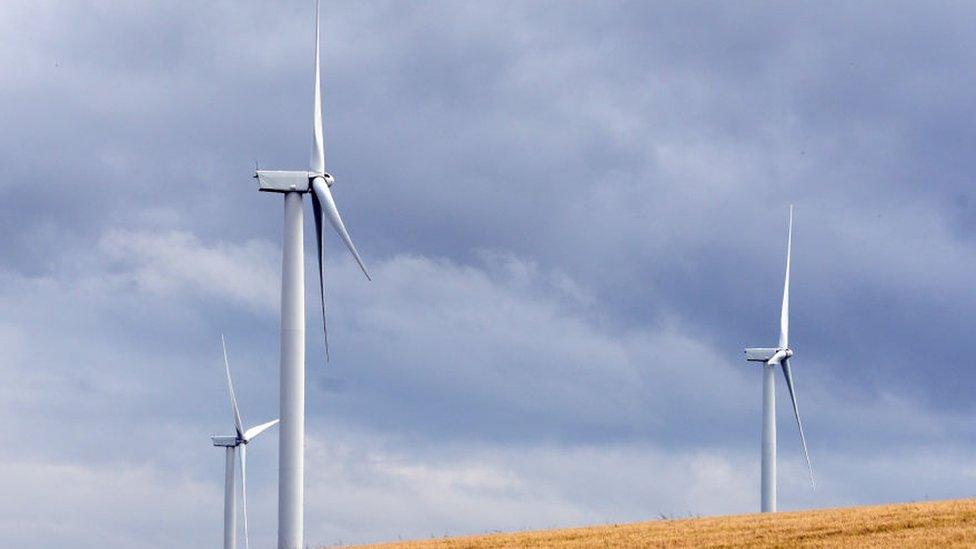Renewable energy: NI planning system 'needs radical reform' to meet targets
- Published
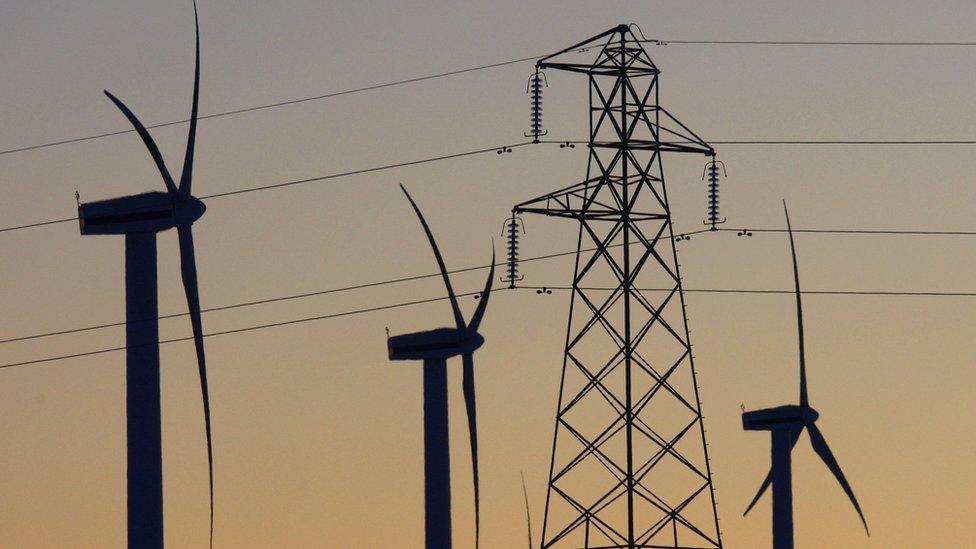
Problems in the planning system are jeopardising the environment, the economy and employment in Northern Ireland, according to a renewable energy organisation.
RenewableNI says the system needs "radical reform".
It claims the Planning Appeals Commission (PAC) is functioning at only about 75% capacity and is experiencing significant resourcing pressures.
The organisation said a member received a letter from the PAC confirming this.
A Department of Justice spokesperson said PAC was a tribunal non-departmental public body but the department was responsible for providing resources and services.
They added that the department was running recruitment competitions to fill vacant posts.
Director Stephen Agnew said renewable energy for 85,000 homes has been held up for more than three years.
Northern Ireland has a target of 80% of electricity coming from renewable sources by 2030.
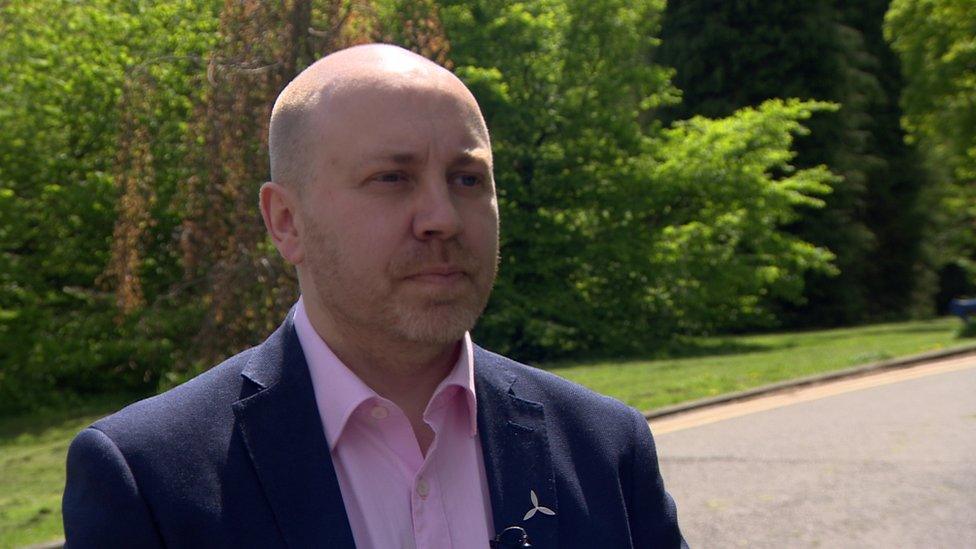
Stephen Agnew says there were concerns about the PAC's ability to work at pace when operating at 100% capacity
RenewableNI said the letter stated the PAC did not have the resources to allocate a commissioner to a review of a renewable electricity development.
The letter cited "significant resourcing pressures", with "a major conjoined public inquiry" currently using all of them.
It also suggested that only a single inquiry could be held at a time.
Mr Agnew said RenewableNI previously had concerns about the PAC's ability to work at pace when operating at 100% capacity.
He added that this was a "substantial impediment" to all developers and the system was "unfit for purpose".
"To reach 80% by 2030, we need to double our renewable capacity and we're not developing those projects. So if business as usual continues, you will get nowhere near those targets.
"If we reach our 80% renewable target by 2030, that could bring over £5bn of new investment to Northern Ireland and create 1,500 plus jobs. So that's the potential.
"We just need to have a system that facilitates that."
There are concerns that some renewable energy investments could be withdrawn from Northern Ireland without reform.
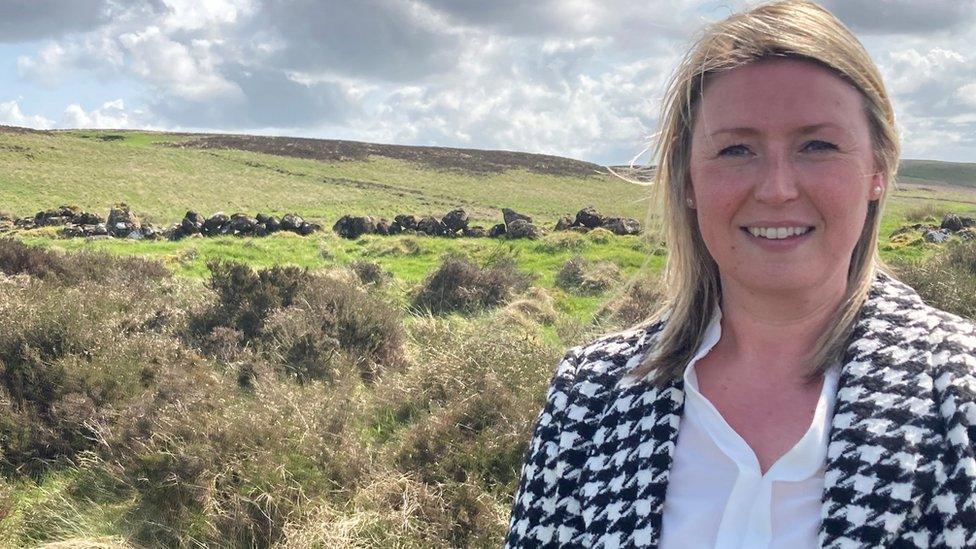
Tamasin Fraser believes there is a risk Northern Ireland will miss out on green energy investment due to planning issues
"There is a huge risk that investment will be lost in Northern Ireland and we will not reach our 80% targets," said Tamasin Fraser, UK director of the German green-energy company ABO Wind.
"In order to get to those targets it's going to take a £5bn investment in Northern Ireland. In other countries across the world they are making significant strides to actually push forward with planning to ensure that the projects are achieved. Here, we're not able to do that."
She added: "So the question for me is, are we willing to stand by and watch £5bn of investment go to our neighbours and further afield?
"Or are we prepared to now step up, take action and make tangible change so that we can secure that investment for the good of Northern Ireland and to bring about better energy security in Northern Ireland and address the energy crisis?"
'No timeline in Northern Ireland'
For another company, the ease of the planning process in the Republic of Ireland has already proved much more attractive.
Strategic Power Projects has more than €1bn (£870m) worth of projects in the pipeline, with one project taking just five months from application to approval, in accordance with the time limits of the Republic's system. The solar and battery-storage specialist's managing Director Paul Carson said such certainty was not available in Northern Ireland.
"There is no timeline in Northern Ireland; we just don't know," said Mr Carson.
"So when a developer is taking an investment decision, the developer will always go to where the certainty is, where the confidence is.

Paul Carson says renewable power companies do not have confidence in Northern Ireland's planning system
"At the minute, we don't have any certainty or confidence in the planning system in Northern Ireland because we just don't know when we would get the decision. And you can't run a business on that basis - you need to have certainty on timeline.
"But we are also working on new projects for Northern Ireland. And if we can see a change in the way planning is dealt with in Northern Ireland, we will have those projects are ready to submit, because we all have a task to do here to try to get [to] 2030 targets," Mr Carson said.
Speaking on Friday, Mr Agnew said the renewable electricity industry had accepted a fees increase, despite Northern Ireland already having the highest planning application fees of anywhere in these islands.
"However, we insist the increased fees should be value for money and the system resourced to meet the needs of users," he added.
Related topics
- Published13 December 2020

- Published6 September 2022
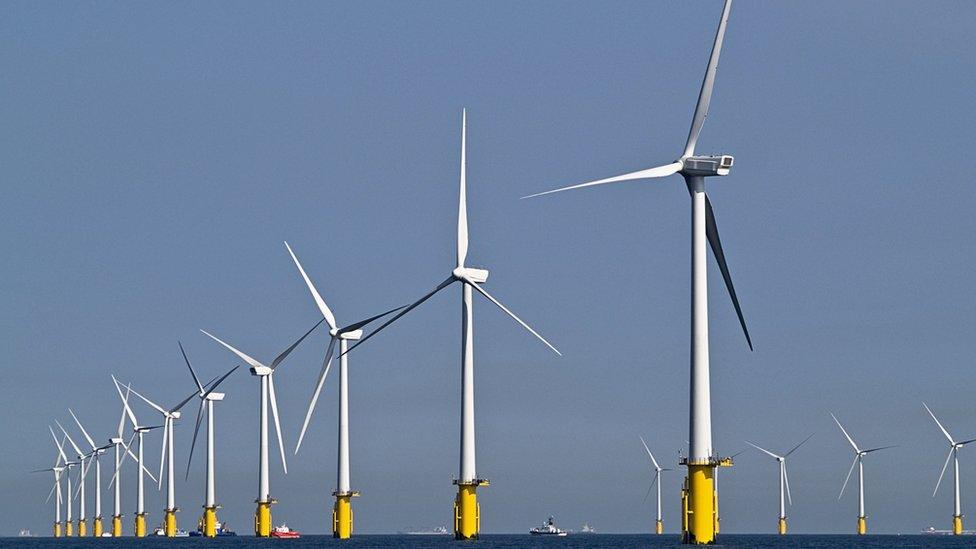
- Published9 March 2023
